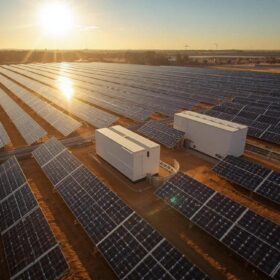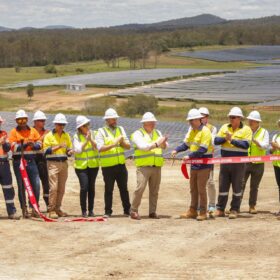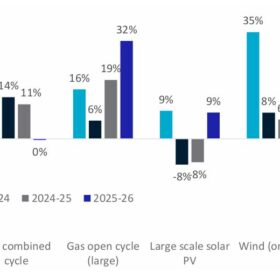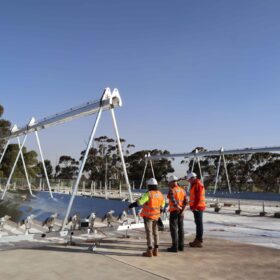The open letter outlines the common ground for renewable gas market development with a diverse cross sector backing the call on government to recognise the potential of biomethane and hydrogen to play a significant role in solving energy market decarbonisation challenges while providing the lowest cost transition to a decarbonised energy system.
CEO Bioenergy Australia, Shahana McKenzie, said the letter represents thousands of organisations and millions of employees across business, industry and utilities sectors who are willing to work together on innovative cross sector solutions in the market. “This support, combined with the right government vision and investment, means Australia could unlock the significant economic and varied social benefits of bioenergy – particularly in regional areas,” said McKenzie.
This includes waste-water treatment plants, agricultural and food processing facilities, meat and livestock processing facilities where the methane is captured and used rather than emitted into the atmosphere.
CEO of the Australian Hydrogen Council, Dr Fiona Simon, called for the government to support the massive innovation and opportunities to improve national industry infrastructure. “Australia can continue to thrive as a major global energy producer in the new economy with our vast renewable energy capacity and renewable gas technology.
“Developing hydrogen as part of the long-term energy mix can have enormous payback for Australians. Clean hydrogen allows Australia to reduce our carbon emissions. Large scale hydrogen production will mean new jobs and a major new export market.
“Australia has some of the world’s best hydrogen research projects. It is essential we turbo charge these with additional investment and supportive policy.
“To reap these benefits, Australians require the government to clearly signal a national direction for renewable gas. Hydrogen can add huge value to the manufacturing sector which can be in regional or remote areas. We urge the Commonwealth government to support renewable gas as a significant part of our national energy portfolio.”
A landmark report commissioned by Bioenergy Australia last year on the availability of biogas in Australia identified 371PJ of available energy, which is enough to decarbonise industrial, commercial and residential gas users currently supplied by distributed gas networks across Australia.
The report provides nine recommendations to overcome the challenges facing the emerging industry, which include the need for more favourable policy conditions to enable the growth of a mature and sustainable biogas industry in Australia.
The National Hydrogen Strategy recognised the significant opportunity for network blending to reduce emissions domestically and build a platform for future exports, strengthening Australia’s economy.
Renewable gas provides compelling solutions to support the uptake of variable renewable electricity, and further drive decarbonisation through solutions for heavy industry, transport, domestic gas supply and energy storage.
The joint letter highlights a number of key policy measures, common to biomethane and hydrogen, to enable the renewable gas markets, for example, unlocking seed funding and establishing Special Activation Precincts to further support renewable gas market activation and sector coupling to harness the full range of renewable gas solutions.
Simon and McKenzie said, “Government also needs to move quickly to get a certification scheme in place to facilitate domestic and export renewable gas purchase agreements, and establish a market mechanism to drive blending of renewable gas in the gas network to scale the market.
“We are confident with the right policy settings, Australia can attract the necessary investment to deliver a cost-effective, zero-emissions energy system that will create new jobs and new industries.
“To achieve this, we are calling on governments and relevant agencies to work with us to further identify and raise awareness of the renewable gas resources that are available for development at a Federal, State/Territory and regional level and unlock seed funding from government and private investment to showcase, activate and de-risk the hydrogen and biomethane market across Australia.”
McKenzie adds “Creating this policy environment will enable gas users to quickly and cost-effectively achieve net zero emissions now, while also scaling to play a significant role in decarbonising the gas supply system over the next decade and beyond.” concluded McKenzie.






By submitting this form you agree to pv magazine using your data for the purposes of publishing your comment.
Your personal data will only be disclosed or otherwise transmitted to third parties for the purposes of spam filtering or if this is necessary for technical maintenance of the website. Any other transfer to third parties will not take place unless this is justified on the basis of applicable data protection regulations or if pv magazine is legally obliged to do so.
You may revoke this consent at any time with effect for the future, in which case your personal data will be deleted immediately. Otherwise, your data will be deleted if pv magazine has processed your request or the purpose of data storage is fulfilled.
Further information on data privacy can be found in our Data Protection Policy.